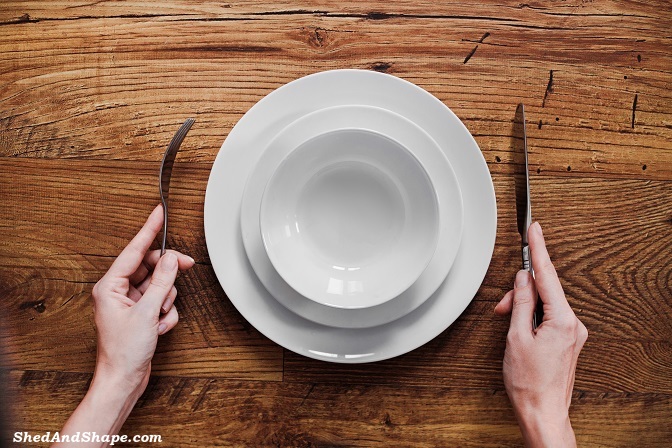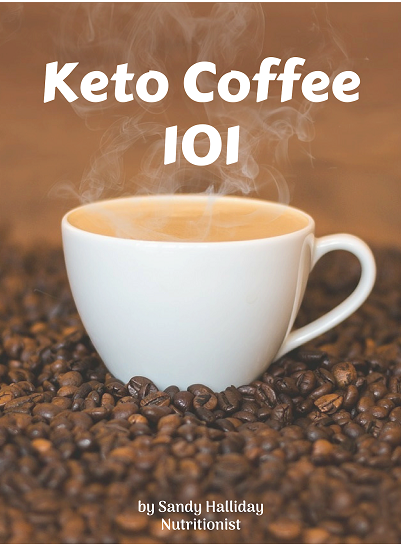If you’ve arrived here from a search on information about dry fasting after seeing influencers on Instagram promoting it as a way to enhance weight loss then I have to tell you that it is a different type of dry fasting from the one I am going to be talking about in this article.
The type of dry fasting these influencers are talking about involves abstaining from drinking any water, tap (who wants to drink that?) or otherwise. They maintain that you can get all the “living water” you need from fruit, vegetables and their juices and coconuts.
The type of dry fasting for keto we are gloing to be looking at here excludes water and other liquids as well as food for a set period of time.
Some people take it to extremes and avoid all water including water for teeth brushing, washing and showering. This is known as hard dry fasting. Soft dry fasting does not take it to those extremes and you can use water for hygeine purposes but not for drinking.
Most fasting methods allow you to drink as much water as you like while you take a break from eating. This is somewhat easier than going without both food and drink.
Some experts think that dry fasting is dangerous and could lead to dehydration and all that it entails.
Related reading: Fat Fasting: What is it and When to Use It?
Still, advocates of dry fasting believe that it is doable and that it can come with many benefits, especially for people following the keto diet.
But are the dry fasting benefits really worth it? Read on to find out more about dry fasting and the benefits that you can get if you incorporate it into your keto diet.
What is Dry Fasting?
As already mentioned, dry fasting is a fasting method that does not allow any intake of water. It is believed that the lack of water could help to accelerate some of the fasting benefits, especially for those who are trying to lose weight.
Related reading: Modified Keto Diet – A Better Way to Lose Weight?
Dry fasting has been followed by various religious groups for thousands of years now. For instance, Muslims during the month of Ramadan would abstain from eating and drinking from dawn to dusk for 30 days.
Jews also fast during the tradition of Yom Kippur by not eating and drinking from sundown the day before Yom Kippur to one hour after sunset on the following day.
According to Robin Foroutan, RD, a dietitian at Morrison Center in New York and spokesperson for the Academy of Nutrition and Dietetics,
“Fasting has been done for millennia for health and spiritual reasons and is built into a lot of cultures. Still, it can be hard to draw conclusions based on data. The limited data we have on dry fasting comes from studies done of religious fasts.”
He also pointed out that fasting during Ramadan is only done for one month and practiced by healthy adults.
When it comes to health and weight loss, dry fasting can provide several benefits. Some of the dry fasting benefits include reduced inflammation and improved metabolic health.
However, since it is a more advanced fasting method, only people who have previous experiences of other fasting methods such as intermittent fasting should try it.
Related reading: Can You Do Intermittent Fasting On Keto?
Dry Fasting Benefits
1. Enhanced Ketosis
One of the dry fasting benefits for keto is that it can help to enhance your body’s ability to get into ketosis. If you’re already following a low carb diet, you will be making it easier for your body to use fats for fuel if you dry fast.
Dry fasting on keto is much easier since you will experience less hunger and thirst, which means less discomfort overall.
2. Decreased Inflammation
If you start to dry fast, your inflammation levels will eventually decrease. Studies show that people who dry fast during Ramadan have significantly lowered the concentration of some inflammatory markers.
Dry fasting can reduce inflammation by lowering the leukocytes (immune cells). This is because leukocyte-derived inflammatory molecules could increase one’s chances of developing inflammatory diseases.
3. Improved Metabolic Health
If you’re trying to lose weight, dry fasting can help you achieve your weight loss goal fast. That’s because one of the dry fasting benefits is to improve your metabolic health. Several studies have shown that fasting for short periods can increase your metabolism.
Related reading: 5 Simple Ways To Boost Your Metabolism To Lose Weight
Remember that the higher your metabolic rate, the more calories you can burn, resulting in faster weight loss.
Related reading: Lumen Metabolism Tracker Review
4. Prevents Diabetes
Dry fasting may also prevent the onset of diabetes, thanks to its glycemic benefits. It can regulate blood sugar, which is another important metabolic marker. In fact, some scientists believe that fasting could play a key role in managing Type 2 diabetes.
Related reading: Is the Keto Diet Good for Diabetes?
5. Lower Blood Pressure
Several studies have shown a decrease in the systolic (top figure) blood pressure of people who followed dry fasting and these effects are even greater for those who follow the keto diet.
In one study, people who followed a high-fat diet while incorporating intermittent fasting have been found to have a lower blood pressure compared to those who followed a high-carb diet.
Dry Fasting on Keto
If you’re following the keto diet and would like to incorporate dry fasting, here are some tips to do it safely and effectively:
Become Fat Adapted
The goal of the keto diet is to get into the state of ketosis, where your body becomes fat adapted and will start to burn fats for energy. If you are still starting out, you may have to wait for your body to become fat adapted before you start to dry fast.
To become fat adapted, you need to make sure that 70 to 80 percent of your calories come from fats, while only 5 to 20 percent are carbs.
Related reading: What Is Fat Adapted And How To Tell If I Am?
Experiment With Water Based Fasting
It’s important to note that you should only attmept dry fasting if you have already experienced other fasting methods. If you have not done any form of fasting yet, you may want to start by experimenting with water-based fasting first.
This is very important since it helps you assess your body to see if it is prepared to do dry fasting. Follow intermittent fasting for a week and see how your body responds. If you think you can do without eating and drinking for 12 hours, you can switch to dry fasting.
Prepare your Body
Before you follow dry fasting, it is advisable to give your body a week to prepare. Experts suggest quitting caffeine and other stimulants a least a week before you start to dry fast. This is to avoid any withdrawal symptoms. Slowly cut down your calorie intake as well to allow for an easier and smoother transition.
Final Thoughts
If done right, dry fasting can promote good health and help you achieve your weight loss goals faster. However, dry fasting is a more restrictive form of fasting as it restricts both drinking and eating. It should not be done by beginners who have no fasting experience.
To ensure safety while getting all the dry fasting benefits for keto, you must take the necessary steps to prepare your body before attempting to incorporate dry fasting into your keto diet.
It’s also highly recommended to consult with a naturopath, nutritionist or other health expert who is experienced in dry fasting before attempting it especially if you are suffering from any serious health conditions and are taking any medications.










